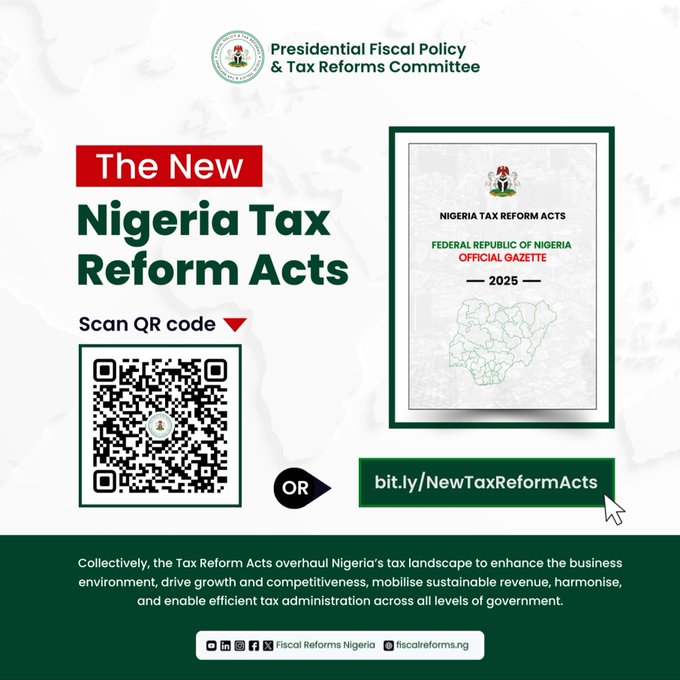Nigeria New Tax Laws offer exemptions, reduced rates and incentives to boost investment and ease business operations
Nigeria New Tax Laws were signed into effect on June 26, 2025, marking one of the most sweeping reforms in the nation’s fiscal framework.
Also read: Nigeria’s Proposed Tax Reforms: Balancing Revenue Generation and Stakeholder Concerns
Four major pieces of legislation were enacted to reset the tax system:
- Nigeria Tax Act, 2025 (NTA)
- Nigeria Tax Administration Act, 2025 (NTAA)
- Nigeria Revenue Service (Establishment) Act, 2025 (NRSEA)
- Joint Revenue Board (Establishment) Act, 2025 (JRBEA)
The reforms are designed to ease business operations, stimulate economic activity, and strengthen tax administration nationwide.
High exemption threshold for small companies
Firms with annual turnover not exceeding ₦100 million and fixed assets under ₦250 million will enjoy 0% corporate tax under the NTAA.
Lower corporate tax for large companies
The standard rate of 30% may drop to 25% for large companies, effective from a future date to be set by the President on the advice of the National Economic Council.
High thresholds for top-up tax
Exemptions apply to local firms with revenue below ₦50 billion, while multinationals are exempt up to the €750 million benchmark.
Economic development incentives
Investors in priority sectors will benefit from a 5% annual tax credit, reinforcing Nigeria’s bid to attract fresh capital into strategic industries.
Payment flexibility
Businesses involved in foreign currency transactions can now opt to settle their taxes in Naira, using the official market exchange rate.
Commencement dates
The NTA and NTAA take effect from January 1, 2026.
The NRSEA and JRBEA commenced immediately on June 26, 2025, ensuring that the necessary institutions are fully prepared before the 2026 rollout.
Broader Outlook
The Nigerian government says these reforms are a powerful step towards balancing business competitiveness with efficient tax collection.
Also read: Tinubu’s tax reform bills to boost revenue, Jobs, and economic growth
Analysts note that while exemptions and lower rates could ease pressure on companies, the success of the framework will depend on strict enforcement and transparent administration.





























